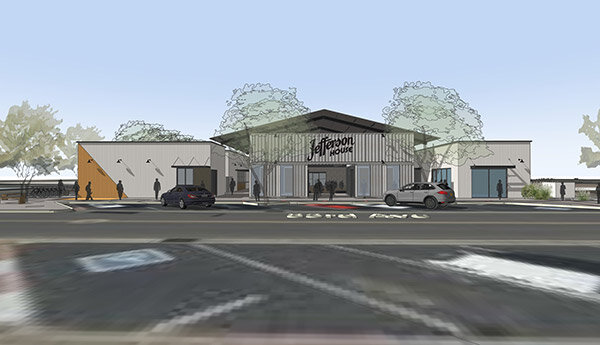
By Mike Sunnucks | Rose Law Group Reporter
From increased crossing training of employees and curbside services helping residents to meal deliveries to seniors and coordinating with businesses on when and how to reopen the economy, Pinal County communities are navigating their way through the COVID-19 pandemic and all its impacts.
That was the focus of a virtual forum this morning hosted by the Pinal Partnership economic and community development group.
City managers from seven Pinal County cities and towns shared best practices and major challenges during the Zoom forum moderated by Rose Law Group Founder and President Jordan Rose.
Todd Pryor, town manager of Superior, said local businesses were included early in the Arizona town’s response to the Coronavirus. Pryor said a business and community task force has been set up to help navigate COVID-19 including when to reopen.
“We’re a small town. It’s easy for us to reach to everyone and get them on board,” Pryor said.
Superior has a population of approximately 3,000.
Coolidge, Apache Junction, Eloy and other municipalities continue to conduct inspections of construction and development sites all with proper social distancing.
Bryant Powell, city manager of Apache Junction, said some inspections are happening faster in the current environment. “We’re really pleased to see that,” Powell said.
The city managers said the pandemic has required faster adoption and use of technology, including Zoom meetings. They expect some of those high-tech measures to become more long-term and expected behaviors.
“A lot of the changes we are going to make are going be based on technology and the ability to make that more seamless and the ability to reach out to citizens,” said Larry Rains, city manager of Casa Grande.
Rick Miller, city manager for Coolidge, said he can see more meeting and presentations, including those from developer, occurring via Zoom and other digital platforms even after COVID-19 and its shutdowns subside.
The virus is also prompting other innovations and new ways of doing business. That includes for local governments.
Maricopa Assistant City Manager Jennifer Brown said the city is offering curbside assistance for residents and businesses who still want to make payments or file paperwork directly inside of digitally.
“We are also doing curbside service,” Brown said. “They pull up. We come out and we help them.”
Pryor said Superior is delivering meals to seniors. He said those types of services are valued by residents but challenge smaller communities.
“We’re delivering 80 meals a day for a town our size that is huge,” he said.
Training and staffing are also a challenge for smaller communities dealing with the pandemic.
Brent Billingsley, city manager for the city of Florence, said the pandemic’s impact on the half dozen prisons located there is a serious challenge. He also said COVID-19 has shown the need for cross training employees for various essential functions.
“Sometimes you don’t have a deep bench,” he said of staffing and resources at small cities and towns. “We need to do more cross training real time. This crisis has given us to the opportunity to do some of that cross training.”
Eloy City Manager Harvey Krauss said COVID-19 has expedited the rollout and use of technology. It is also compelling local governments to be faster and more responsive on social media to keep residents accurately informed.
“We really increased our use of social media,” Krauss said stressing the need to respond quickly and dispel rumors and misinformation. “We have enhanced our social media skills.”





